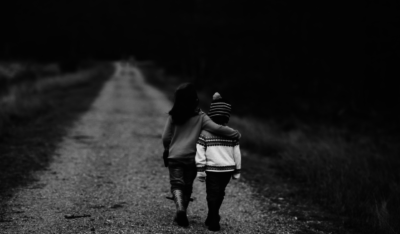
“…we are all connected, and when one of us hurts, we all hurt.”
What if you had a friend, say their name was Taylor, who had fallen out of a tree. As a result Taylor broke both legs, and as such, was immobile to say the least. You hadn’t been there to see the event, but given that you care about Taylor’s well-being, you are sorry for what happened to Taylor nonetheless. You recognize that really, we are all connected, and when your friend Taylor hurts, you hurt.
Mitchell Middle School (MMS) students were invited to consider this story last Friday as part of an Orange Shirt Day assembly, and weigh it in the balance of indigenous peoples in Canada who were impacted either directly or intergenerationally as a result of experiencing residential schools.
The student body took part in a school-wide shared learning experience that allowed them to reflect on their own school experience, (words like fun, cared for, creative and inspiring, among others, were suggested) and then think about what school might be like if words opposite to the ones that were shared (or even worse) described their experience. A connection was made to this latter list and indigenous peoples’ residential school experiences. Students were encouraged to tap into their prior knowledge of residential schools (based on prior in-class readings and the last two MMS Orange Shirt Day assemblies) and were invited to engage this learning through the heart (emotional engagement).
They were then sent back to their homerooms to reflect further on what they had experienced, and charged with the responsibility to as a class, come up with a one to two sentence actionable response to what they had learned and experienced that morning. What could they do to show that they cared? Teachers recorded the decided upon response digitally, and air dropped the recorded message. The various home room responses were then compiled with the others to create a Mitchell Middle School Auditory Tapestry of how students would do something, would act on, the fact that a faction of Canadian society had been hurt as a result of residential schools, and was/is still hurting. If you haven’t heard it, check it out at this link.
It was great to see the students taking part in such important citizenship building discussions. Their homeroom responses were diverse and captured well a variety of ‘doable’ considerations, the likes of which invite all of us as Canadians to think about how we can further our own learning and show that we care about our indigenous neighbours.
Brett Schmall (and Monica Martens)
HSD Learning Coaches
in: General
